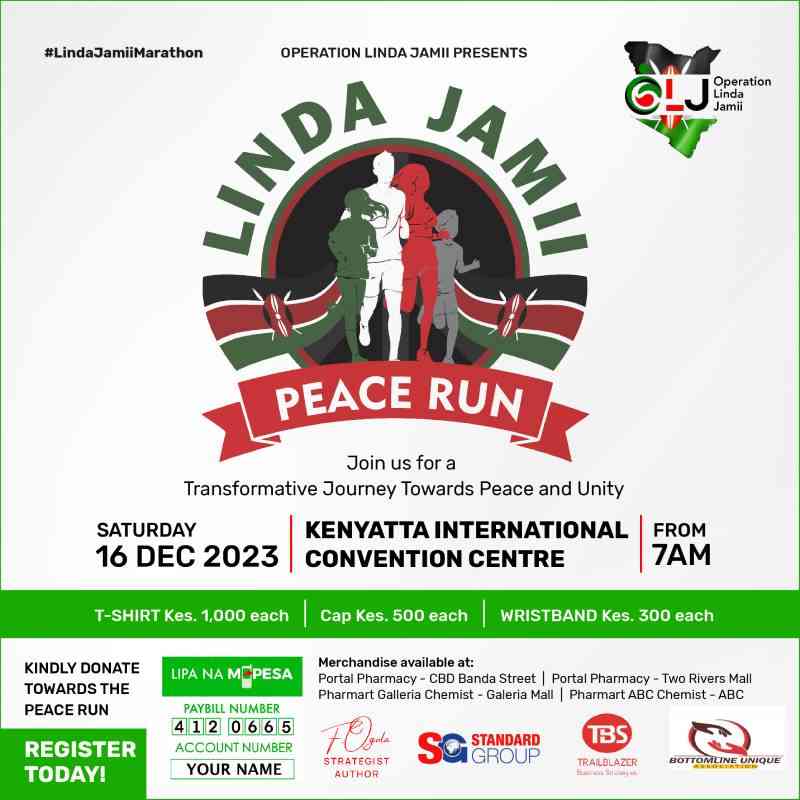
Sometime back, on April 2, President William Ruto, in his speech, extended an olive branch to the opposition and pleaded with them to call off what had been touted to be the "mother of all demonstrations" in Nairobi.
Raila Odinga immediately called off the demonstrations and communicated that they would heed the government's call for negotiations and talks.
Before this, there had been demonstrations every Monday and Thursday, occasioned by the rising cost of living and the effects of electoral malpractices during last year's election. During this time, large demonstrations, sporadic protests, chaos, mayhem, lootings, police tear gas and water cannons had become part and parcel of life in Kenya.
But the main question that remains unanswered is: Is it possible to solve the cost of living, which is an economic problem, using violent means?
Linda Jamii, a civil society organization that upholds the rule of law, professionalism in public and private sectors, and protection of family, household and religious values, believes that we cannot solve an economic problem using violence. Kenya collects about Sh9 billion per day. This means that by going to the streets twice a week to protest, we lost Sh18 billion a week in direct taxes without counting other lost opportunities.
Kenya is currently working towards the third liberation, which is 'economic liberation'. The first liberation, which was the fight for independence from the colonial master, was fought by Mau Mau and others. It involved bloodshed and was successful. The second liberation was about constitutional reform that culminated in the promulgation of the 2010 Constitution, thus birthing modern constitutional Kenya. This also involved demonstrations, chaos and loss of lives and property. This has made the politicians think that every good thing can be achieved through violent means.
'When one has a hammer everything else looks like a nail', so goes the saying. Since the opposition has maandamano as their hammer, they believe they can always use it to succeed. However, with the economy, this is not possible. This is clearly expressed in a Luo proverb which goes, "pesa oluoro koko", which is translated as 'money fears noise' and means that 'economic liberation requires peace and tranquility'. It requires non-violence.
Indeed, history tells us that a lot of good has been achieved through non-violent means - the approach of Martin Luther King of the US, Mahatma Gandhi of India and Nelson Mandela of South Africa are just but a few examples. In the same vein, we call upon our people to shun violence. And these are our reasons:
One: Evil can be resisted successfully without resorting to violence.
Two: Non-violence seeks to win the "friendship and understanding" of the opponent, and not to humiliate him (King, Stride, 84).
Three: Evil itself, not the people committing evil acts, should be opposed.
This means that, in as much as violence sometimes gives instant results such as the so-called Bipartisan talks, it cannot birth Nationhood. Rather, it produces a vicious cycle of violence. Non-violence, on the other hand, creates lasting friendship and relationship that builds nationhood. That is why we welcome you to Operation Linda Jamii, where our commitment to peace and unity drives our every endeavour.
Established with the vision of fostering harmony within the Kenyan community, we tirelessly work towards creating positive change.
Join us in our mission to build a better tomorrow for all.
Stay informed. Subscribe to our newsletter
Join us at the Linda Jamii Peace Marathon on December 16, 2023, at KICC from 7:00am.